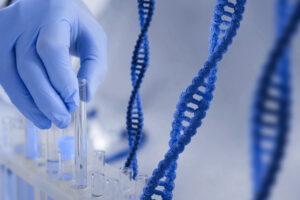Fertility for women relies heavily on the quality of her eggs. If these don’t meet a set standard, difficulty in conception and miscarriages may occur frequently.
Every menstrual cycle, your body releases one egg from your ovaries for fertilization – whether this egg be healthy or unhealthy is entirely dependent on its quality – the latter being the primary cause for female infertility and high miscarriage rates.
Age
Women’s fertility potential, both egg quantity and quality, decreases over time with significant decline starting around their early 30s. To become pregnant successfully, an egg must successfully fertilize with sperm and implant into the uterus; when an inferior-quality egg fertilizes successfully it may result in miscarriage or birth defect in its embryo; such instances could increase miscarriage rates further still.
Because a woman’s egg supply decreases over her lifetime, understanding egg quality as an integral factor of conception is of paramount importance. Implantation odds depend heavily on age; when fertilized eggs age further along their journey to become viable fetuses.
Good news is there are numerous steps women can take to increase egg health. This may include making dietary and lifestyle adjustments which increase their odds of fertilization, implanting in their uterus successfully, and leading to a healthy pregnancy.
Egg quality has emerged as a central understanding of age-related fertility decline and has become associated with both assisted reproductive technology (ART) and less medicalized lifestyle interventions (ColoCRM, 2018, Extend Fertility 2019, Sekhon 2020). Lifestyle interventions often promote a narrative which suggests women as biologically competent enough to influence their own biology without technological mediation.
Genetics
Women with poor egg quality often find it difficult to conceive and experience multiple miscarriages due to chromosomally abnormal embryos that fail to implant or lead to healthy pregnancies, often miscarrying early in their gestationsal cycle. Such eggs could either fail to fertilise at all or develop into pre-embryos with an abnormal number of chromosomes (aneuploid), leading to miscarriage at very early stages.
Egg count and quality are both crucial elements to fertility. A woman is born with her lifetime supply of eggs; as her ovarian reserve depletes, so too does their quality and quantity of ova.
Women can do several things to increase their chances of pregnancy and maintain optimal egg quality, including taking vitamins and avoiding environmental toxins which could compromise egg quality, such as smoking or taking systemic toxic medication such as chemotherapy and endometriosis drugs.
Fertility for women can be likened to a gumball machine; each month during her menstrual cycle, one egg from each ovary will be released, either healthy or unhealthy; over the course of multiple menstrual cycles a woman can collect enough healthy eggs to reach gestation.
Hormones
Women’s eggs (oocytes) are housed within tiny follicles in her ovaries. As these follicles increase in size during early ovulation stages, they will release eggs at various levels of quality; those of highest quality could help conceive and sustain pregnancy successfully while those of lower quality could result in miscarriages or other reproductive issues.
An active lifestyle, reduced stress levels and regular exercise are key components of supporting egg health. Supplements like CoQ10 and dehydroepiandrosterone (DHEA) have also been shown to improve egg quality by decreasing oxidative stress levels; additionally certain fertility medications like gonadotropin-releasing hormone (GnRH) agonists can encourage larger follicles containing better eggs.
As women move through their ovulation cycle, doctors can use transvaginal ultrasound to accurately gauge how many growing follicles there are and help establish an individual’s ovarian reserve – an indicator of both egg quantity and quality. Although tests exist to detect low AMH levels, no single test measures egg quality; therefore a thorough evaluation and consultation with a reproductive specialist is the only accurate way to get an accurate picture of an individual’s egg health, including their AMH level, expected reserve level and their potential success with IVF treatment.
Lifestyle
Though hormones and age play an integral part in determining egg quality for women, lifestyle factors can have an even larger influence on egg health. Eggs are protected within their ovaries from many toxins or disease processes that might harm other parts of a woman’s body – thus it’s imperative that women make wise lifestyle decisions to maintain the best chances for fertilized eggs.
Sleep is essential to egg health because it stimulates the secretion of melatonin which promotes quality oocyte (egg) maturation and quality. Staying hydrated through drinking plenty of water increases blood flow to support egg health and fertility, while exercise, stress-reduction techniques such as meditation or yoga may also increase oxygenated blood flow to your ovaries.
Women can assess the quality of their eggs through various tests, including an egg count and chromosomal abnormality analysis. Fertility treatments like IVF combined with Preimplantation Genetic Testing (PGT) may help enhance egg quality further, though with age comes decreased quality over time; lifestyle adjustments that preserve healthy eggs and increase chances of natural conception or fertility treatment may help preserve health eggs longer, particularly if women are already over 35.





